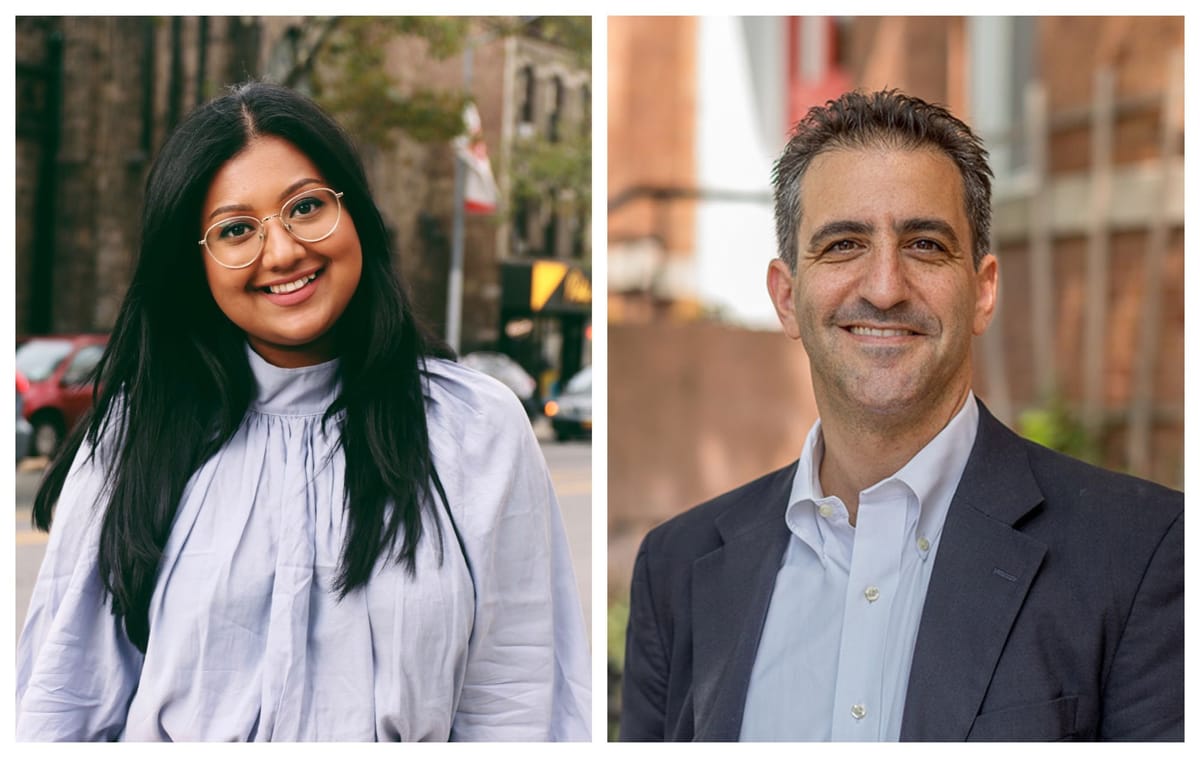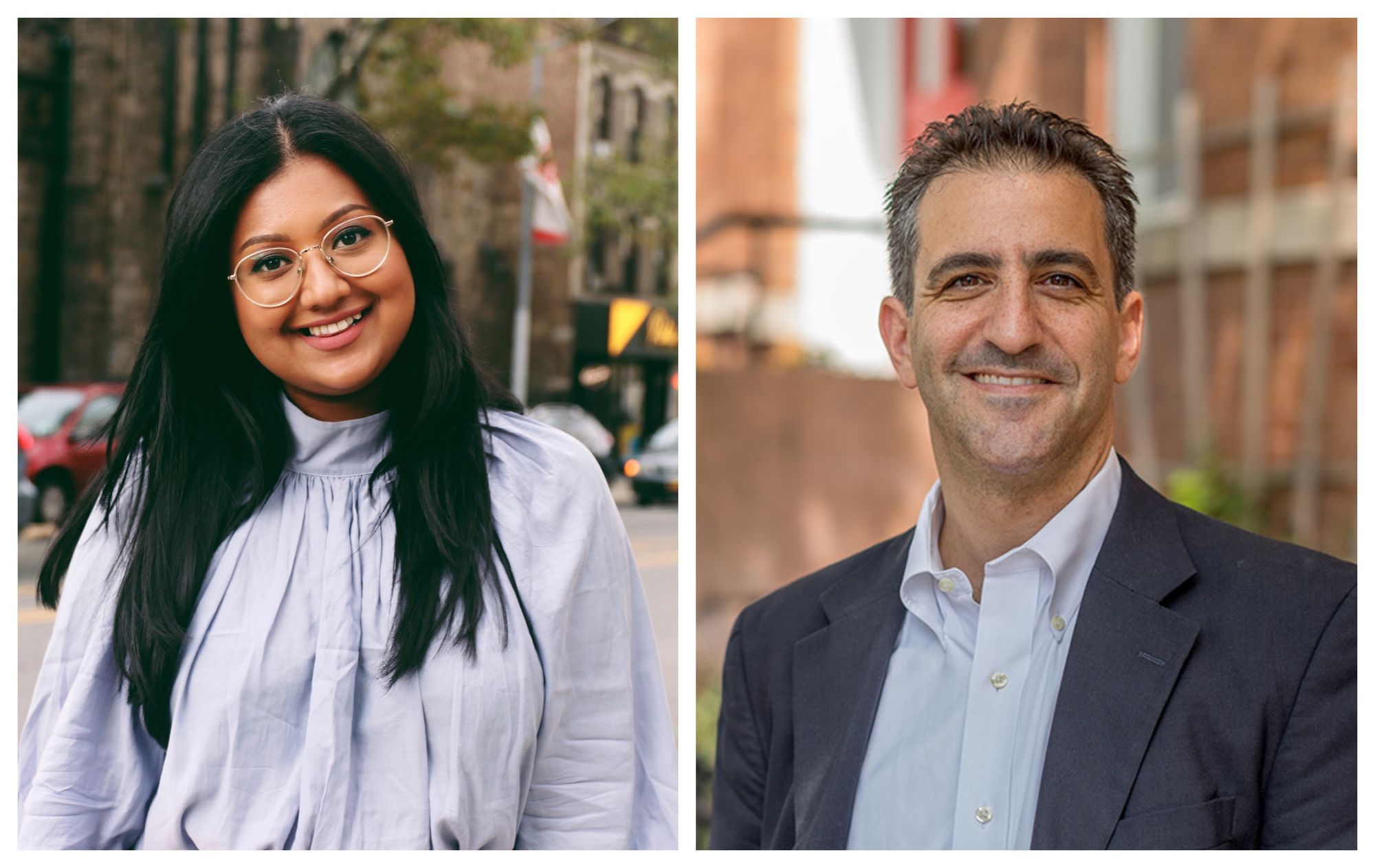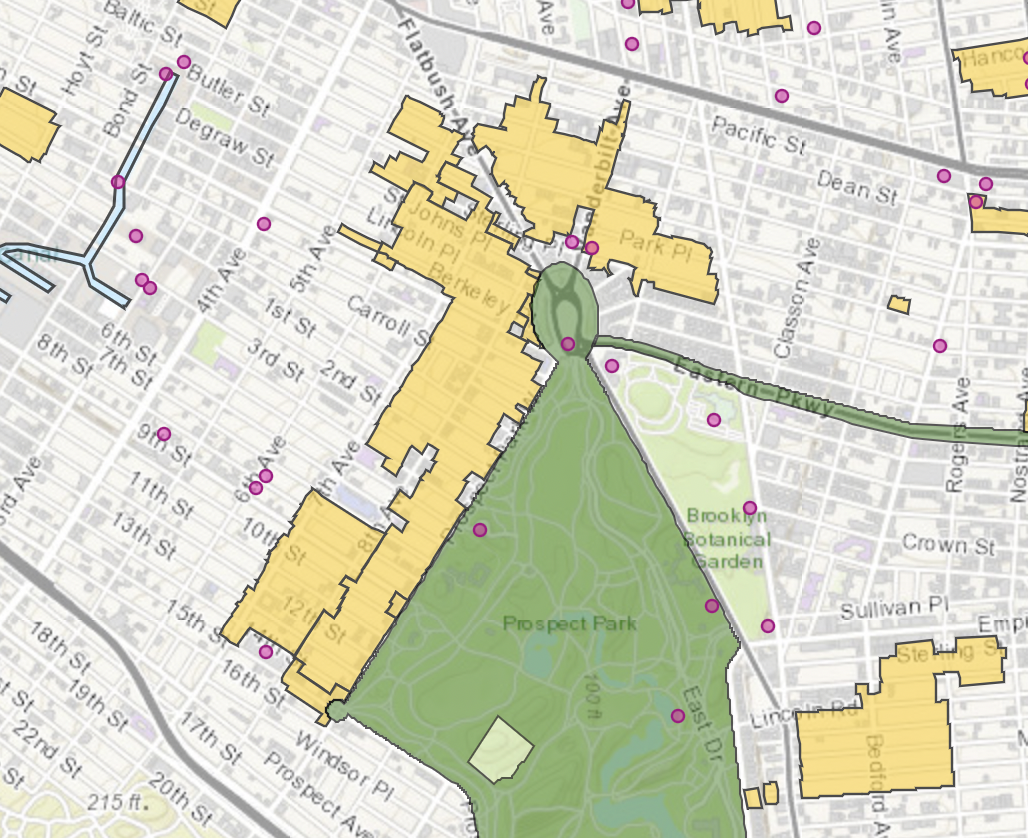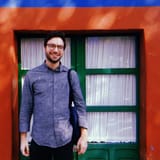What To Preserve And What To Develop – Some District 39 Council Candidates Can’t Seem To Make Up Their Minds About Park Slope


Does landmarking make neighborhoods more affordable or more expensive? Some Park Slope council candidates can’t seem to decide.
At a debate on Sunday, seven candidates seeking to replace term-limited Brad Lander in the Council District 39 seat were asked if they would support expanding the Park Slope Historic District, in which buildings are prevented from being demolished or significantly altered.
The historic district, among the city’s largest, already covers much of the neighborhood’s eastern half, and has been expanded twice in the last decade with Lander’s support. But extending the protections further west has been a long-time goal of the Park Slope Civic Council, which organized the debate.
“Of course I support preservation,” responded Shahana Hanif, a former Lander staffer and a leading candidate in the race. Hanif said she would engage “in coalition work to make sure that the Park Slope Civic Council is at the table. To make sure that residents who have lived here, or residents who are moving in are part of those conversations about preservation of rent. Making sure that we are fighting off climate change, and preserving the beauty and history of Park Slope.”
A few minutes later, though, her competitor Doug Schneider, an attorney and Democratic Party district leader, accused her of flip-flopping.
“I was a little surprised to hear Shahana say that she supports historic preservation,” he said, “because just a few months ago, she said about landmarking [that] it’s an opportunity for wealthy Park Slopers to hoard critical infrastructure, and called for District 39 to push back on landmarking.”

Schneider’s call-out was an unexpected jolt in a debate that was otherwise mostly characterized by friendly bromides and jokes about ice cream.
Let’s check the tape: at a December 2020 meeting of the Brooklyn Young Democrats club, Hanif did say “landmarking prevents affordable housing.”
City Council District 39.”It is an opportunity for wealthier communities like Park Slope to hold on to critical institutions but making it inaccessible for there to be any improvements or the scope of affordable housing within the district,” Hanif said.
“Landmarking holds on to the power of some while excluding the voices of others,” she continued. “And I feel that CD39 is capable of shifting the ways we push back against landmarking and making sure that we focus on community input.”
At the debate, Schneider himself seemed to play both sides of the coin: he said he supports expanding the historic district, arguing that “landmarking prevents displacement.” But in response to a previous question about the proposed Gowanus rezoning, he also said “we need to build more affordable housing everywhere, including in wealthy neighborhoods.”
Other candidates at the debate offered a range of responses. Mamnun Haq and Bridget Rein expressed unqualified support for expansion, while Justin Krebs was more circumspect; he said he would “want to make sure he was hearing from owners as well as renters,” as well as from businesses on 7th Avenue.
Brandon West said he would “need to do a little research into how it would actually expand, but I do support keeping these old buildings together.” He also said “we have to be very careful” about advancing policies that facilitate housing segregation. Jessica Simmons said she supports expansion, “but with the same caveat” as West.
The contrasting statements reflect the differing sides of a frequent debate between preservationists and affordable housing activists. Many of the latter, including Housing Rights Initiative director Aaron Carr, say that while protecting individual buildings is valuable, landmarking large swathes of neighborhoods restricts new housing supply and drives up prices, keeping high-demand neighborhoods like Park Slope unaffordable.
Historic district advocates have long contended that neighborhood landmarking is a boon for affordability, but one thing you should know about this claim is that it is a lie.
Here's a list of 29 studies that show that district landmarking increases the cost of housing.
THREAD pic.twitter.com/451A676BQ3
— Aaron Carr (@aaronAcarr) May 13, 2021
The median household income in Park Slope is just over $128,000, according to government data, more than double the citywide income of $60,800. The median household income in the census tracts that overlap with the existing historic district is even higher, at over $140,000.
Butt the Civic Council’s Peter Bray insists the dispute is based on “an entirely false dichotomy.”
“This notion of trickle-down economics or trickle-down housing is a joke,” Bray told Bklyner, pointing to a 2003 upzoning of nearby 4th Avenue that did not include affordable housing requirements. “Just simply building more housing in the city is not going to guarantee that there is adequate affordable housing.”
In a subsequent statement provided to Bklyner, Hanif argued that her two statements did not conflict; she said wants a citywide housing plan that both “prioritizes community ownership over for-profit development and preserves our neighborhoods’ cultural and historical institutions equitably.”
She cited the Pavilion Theater in southern Park Slope, whose owners at one point considered converting the building to condominiums before installing a Nitehawk Cinema location, as an example of a building that “should be preserved and protected from luxury developers.” Schneider, who was involved in a public fight against the condo proposal, also cited the theater at the debate.
But the Pavilion Theater, which is located within the historic district, is one building. The Park Slope Historic District and its existing extensions encompass a total of nearly 2,700 buildings.
That number could grow even higher: the Civic Council plans to renew its push for another extension in the area between 5th and 7th avenues, from Union Street to 7th Street —and eventually further south. Doing so will require the support of the area’s Council Member and the Landmarks Preservation Commission, whose leadership is appointed by the mayor.

To that end, Bray said he was “generally pleased” with the candidates’ responses to the landmarking question at Sunday’s debate.
“I don’t expect people running for office to have historical preservation as something they think about first and foremost,” he told Bklyner. “They all sounded like they were open to a dialogue with the community.”





